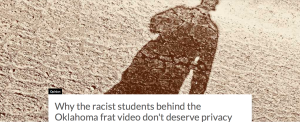
The Walking Dead, like any show, has its problems. While it is one of the most diverse shows on television, many have criticized its revolving door of people of color: killing one off before adding the next, as if having too many non-white people onscreen at one time would be too much. And while there are lots of women onscreen—including women of color: Michonne kicks ass as well as kicking the ass of stereotyped writing—there is another small thing that continues to irk me when I tune in every Sunday.
Rick, Darryl, and the other dudes look fit for an apocalypse: their scruffy faces get scruffier every season, and flashbacks to the smooth-faced Sherriff Rick of Season 1 are almost shocking in their stark difference. It’s an effective plot device, really; a way of illustrating both the passage of time and the ways in which priorities/capabilities have changed. In last night’s episode, Rick finally says the title, admitting, “We are the walking dead.” And it’s true, they are. They collectively stagger down the road, zombie and living alike, both men and women: dirty, bedraggled, and weather-beaten. So why then, if the dudes are forced to wander the ruins of the United States with Castaway beards, do the ladies have underarms as smooth as Baby Judith’s cheek?
It’s a small beef, I know, but one that is repeated in too many post-apocalyptic, science fiction, and dystopian films to go unnoticed. BuzzFeed made a hilarious listicle last year cataloging the ridiculousness: 12 Female Characters Who Keep Shaving Despite Constant Peril. And it is ridiculous, the notion that with death around every corner, women would still take the time to slip away to the bathroom and shave their armpits. In last night’s episode of Walking Dead the group couldn’t even find water. You mean to tell me the women not only shaved—but dry shaved? No. I can’t believe that. I don’t think any woman would be that desperate.
This ridiculous hairlessness is confounding considering the lengths the show goes to be convincing in other aspects of the zombie apocalypse: sickness, zombie gore, hunger, violence. It’s bizarre that a show with a scope as wide as The Walking Dead’s can imagine many things, but women with armpit hair is not one of them.
Part of this problem is the writers: I could find reference to only three women writers in a list of over twenty credited for The Walking Dead. Much has been written about the mixed results of male writers penning female characters, and we see the results in the media we consume every day: female characters who are unrelatable and lacking in complexity…who shave their armpits during the zombie apocalypse. This is part of the reason so many—myself included—have latched on to Shonda Rhimes’ #TGIT shows: women! Complex women! Relatable, diverse women! It’s an oasis in a dry desert of missed marks.
But it’s not just the male writers, of course. Even many female writers wouldn’t stop and think, “Hey wait, the women should be fuzzier.” Our culture informs our media, and in a culture that both infantilizes and sexualizes women, it’s unsurprising that no one would consider the absence of body hair: we’re so used to its erasure (in advertising, in film, in television) that its absence is somewhat realistic: women don’t have body hair, we’re told. So when it’s missing—even in the most unlikely scenarios—we don’t even notice.
It’s disturbing that women in other realities (dystopian, post-apocalyptic, or sci-fi)—stories of which, unfortunately, are few and far between—are subject to the same sanitization that women in our own sexist world are. In the past I’ve written about the limits of the white imagination when it comes to imagining characters of color in fictional worlds, and the same is true for the collective imagination when it comes to women: our imaginations are stunted by the -isms of our time.
Perhaps this is why there are so few stories—books and film—that tell the stories of women and people of color in worlds beyond our own. The future, it seems, belongs mostly to white men, another reflection of the values we see in our day-to-day realities. Whether the scenario is alien invasion, zombie apocalypse, or government-gone-mad, the story tends to center on white men, with everyone else in their role rotating around them in their “proper place.” Hairless women. One black character killed off to be replaced by another. Would it be a stretch to point out that Glen in The Walking Dead is the least bearded of the men in the cast, a reminder of the traditional emasculation of Asian men in American media? Maybe. Maybe not. But it’s something to notice.
This is why I never stop hunting for science fiction and post-apocalyptic fiction that gives a glimpse at another vision of the future. Kenyan short film Pumzi is one. Upcoming sci-fi romance out of Ethiopia Crumbs is another. Anything by Nnedi Okorafor. Anything by Octavia Butler. Chang-rae Lee’s recent book On Such a Full Sea. There are others, but there are not enough.
Our sexism (and racism) is ingrained in us. It permeates the stories we tell and how we imagine the future. Many have called the apocalypse—in whatever form it arrives in—“the great equalizer.” The thing that brings all of humankind together against the thing that threatens our survival. But when I look at many of the stories we have that tell the story of our future—sci-fi or speculative—too many of them look just like the past.









